If you are looking wholesale lighting solutions, click here.
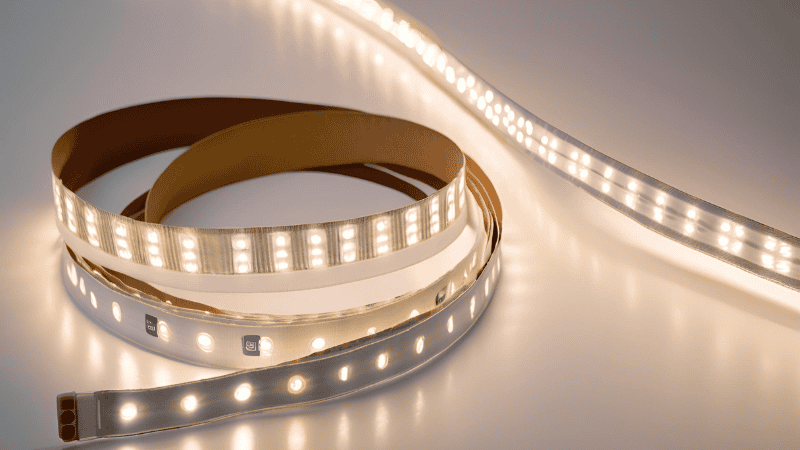
LED Strip lights are a cost-effective, versatile lighting solution for residential, business, and creative purposes.
LED Strip lights find broad application areas in the industry of interior decoration, architecture, and sign making, and can be bent to specification. Precise width selection of LEDs is important as it will define brightness, power, and strip installation convenience.
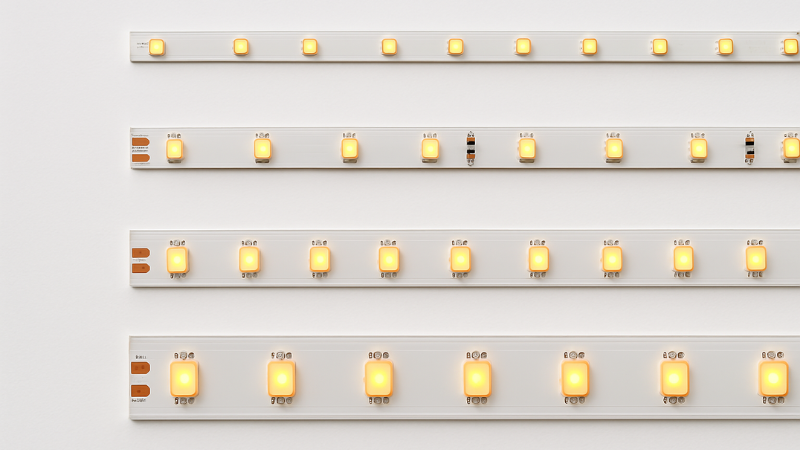
When selecting an appropriate LED strip light, the widths will direct you on how to optimize performance for your application.
The most widely used commercially available LED strips are 8mm, 10mm, or 12mm, particularly in configurations with multiple rows for enhanced brightness. They are ideal for general-purpose lighting applications such as under-counter lighting, under-cabinet lighting, room ambient highlight, and shelf lighting.
The thin strips of specific application (3mm–6mm) are ideal for stealth mounting or thin mounting, and the large ones up to 28mm are ideal for multi-row mounting LEDs for high luminosity.
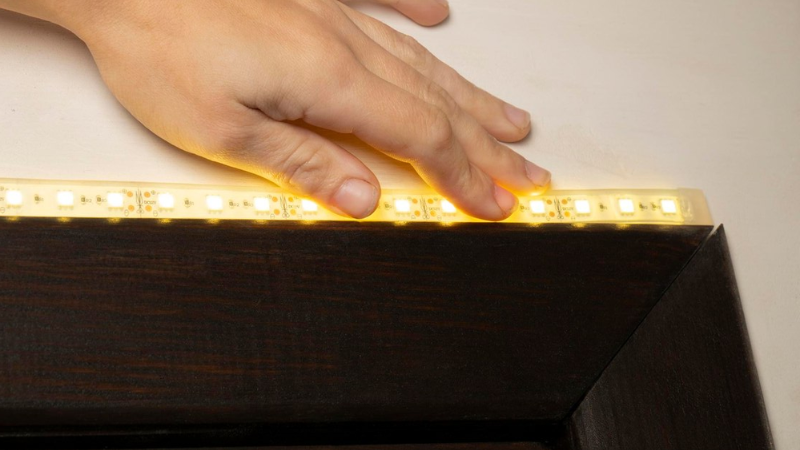
Where heavy-duty lighting needs to be achieved, however, double-row wider-than-normal LED strips are ideal.
Wide LED strips can go up to as much as 120mm in width and usually have more than one row of LEDs. They’re used with triple-row heavy-duty lighting for gigantic commercial spaces, industry, or wherever lots of light in a high-beam, massive space is needed.
Thin or narrow LED strips like 2.7mm COB LED strips are used for thin space illumination, mini-signing, or design effect light where privacy is an issue.
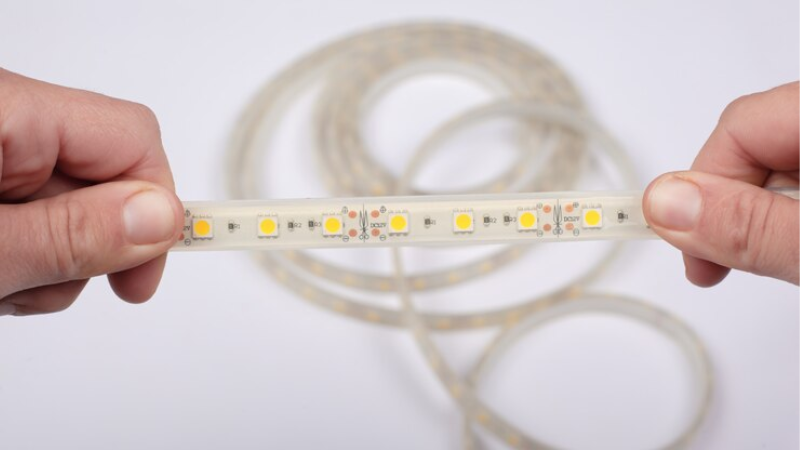
The types of LED chips determine strip width and use for special lighting applications. An approximate guide per chip type follows:
These strips are most recognized due to their dotless, silky smooth light. COB (Chip-on-Board) LED strips are available in 2.7mm, 4mm, 5mm, 8mm, 10mm, 12mm, and 16mm.

Installed on designs where there is a small space and intensive usage, COB LED strips produce silky smooth light free of the dots of LEDs. Installed in interior design and professional applications where there are restricted mounting spaces and low-key lighting.
You can upgrade your interior design by laying different LED strips. It will give an extra dimension to your style and design.

For greater brightness and light power, 5050 SMD LED strips are the preferred choice. 10mm and 12mm standard width and wide multi-row coverage from a minimum of 15mm to 120mm.
It is a high-power, high-brightness, and good color rendering index bulb that is best used in commercial and residential spaces requiring powerful and steady lighting, such as offices, warehouses, or signs.

3528 SMD LED strips are best used where power efficiency is a factor. For 3.5mm x 2.8mm, 8mm, 10mm, and 15mm dimensions, the strips are more energy efficient than 5050s and best for novelty or low-power lighting applications.
Uses include home ambiance lighting, different types of decorative lighting, shelf lighting, and window front dressing of boutiques.

2835 SMD LED strips are responsible for mass use. There are lots of different widths ranging from 5mm, 6mm, 8mm, 10mm, 15mm, 20mm, 28mm, up to 30mm.
Low power usage and high lumens make them ideal for heavy use, from building architectural lighting and signage to residential and commercial lighting.
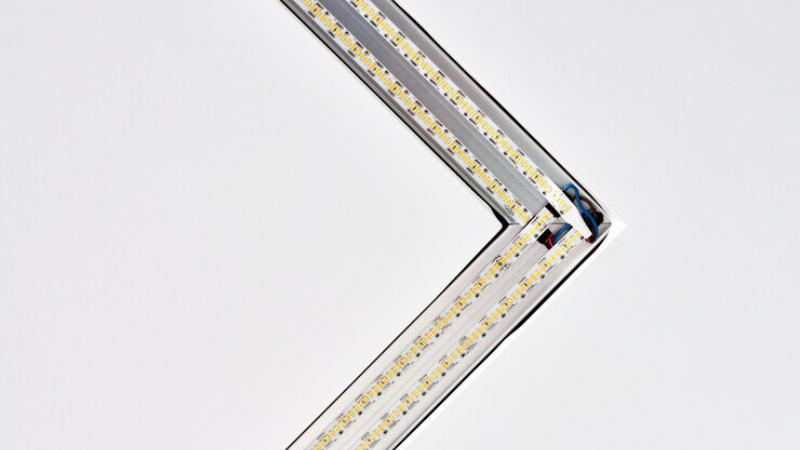
LED strip lights come in different shapes, each with a different purpose. Some are brighter, some are more flexible, and some are water-resistant or outdoor-rated.
The one to use depends on where and how you will be using them—whether for home decoration, business lighting, or commercial purposes. Below is a short description of the most popular ones:
| Type | Brightness | Flexibility | Waterproof | Best For |
|---|---|---|---|---|
| SMD 3528 | Low Brightness | High Flexibility | Optional | Accent & decorative use |
| SMD 5050 | Medium Brightness | MediumFlexibility | Optional | Home & retail lighting |
| SMD 2835 | HighBrightness | MediumFlexibility | Optional | Office & commercial use |
| COB LED Strip | SmoothBrightness | Very HighFlexibility | Optional | Displays & tight spaces |
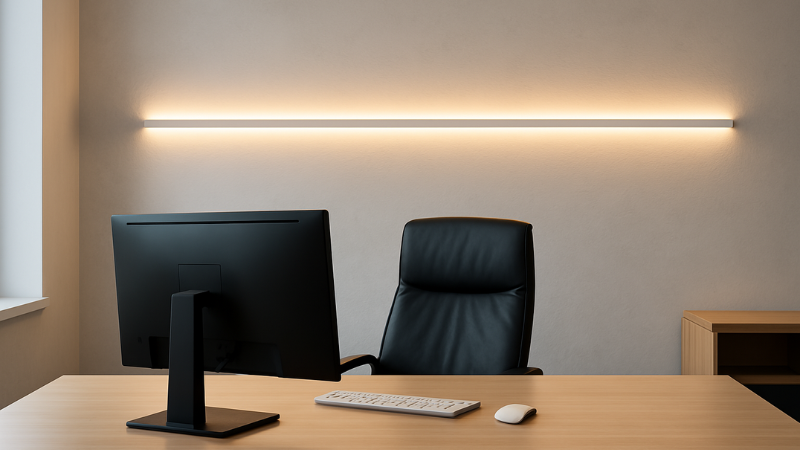
Choosing the right LED strip width is not only a design consideration—it affects installation, performance, and lifespan. Keep the following considerations in mind before buying LED strips:
When choosing an LED strip, never forget your space constraints and light applications. The thinnest LED light strips (i.e., 3–6mm) are adequate for small applications like cabinetry trim or sign work, and larger widths (10mm–28mm+) are ideal for higher brightness or multi-row applications.
Width also determines interfacing to diffusers and aluminum channels, which is important in clean mounting and heat management.
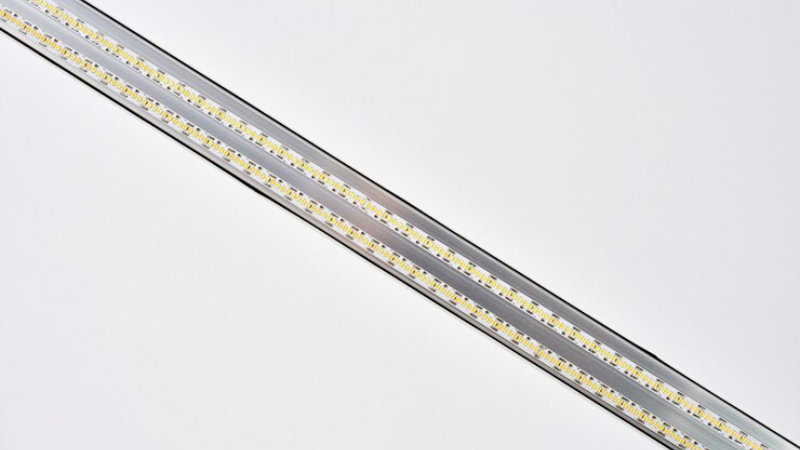
With wider strips, LED density (in LEDs/metre) usually comes into consideration. Increased density gives whiter, more diffused light and is optimally suited to the primary lighting of extensive spaces.
Narrower, less dense strips are optimally suited to ambient or accent lighting uses with smaller or specialty spaces.
Heat management is required for safety purposes as well as for the lifespan of LEDs, particularly with thinner strips.
2835 chip strips produce more heat than 3528 ones, and therefore, aluminum profiles or channels enhance LED heat dissipation in order to grant performance and protection.
Poorly handled heat dissipation could result in failure, reduced brightness, or hazards in sensitive implementations.
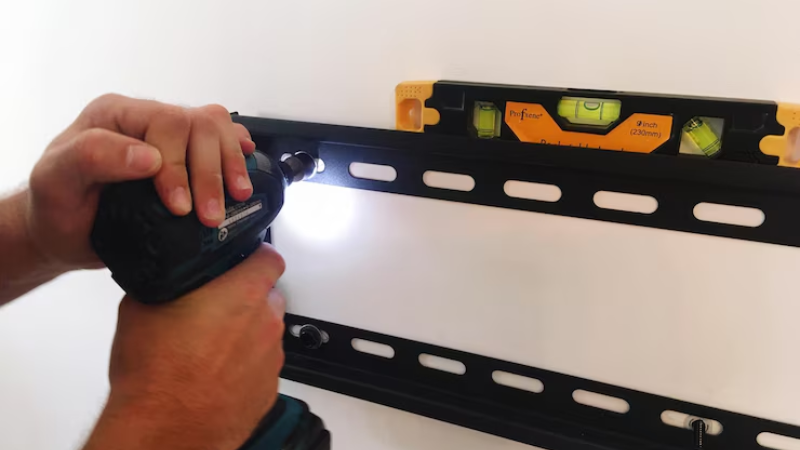
The length of an LED strip isn’t a number—it’s an influence on the convenience or hassle of the installation process and the long-term performance potential of the strip.
The length of a strip influences installation methods and visibility instantly. Thin strips work best in areas where little space is available, such as in the back of cabinets, trim furnishings, or signs.
They are harder to conceal but might have to be handled more carefully. Thick strips, conversely, are less inconvenient to install in open areas but occupy more room and typically call for larger fixtures or channels in order to fit securely.
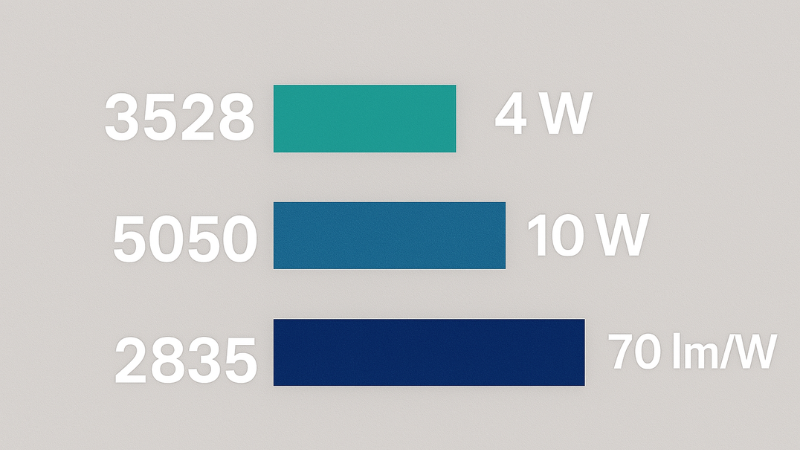
Thin strips use higher power with a growing density of LEDs or a multi-row configuration. 3528 strips, for instance, use less power and lumen-to-watt ratio than 5050 or 2835 strips, which have higher intensity, higher IP rating, and output at a higher cost of power.
The wider and diffused LED strips mean your load on the power supply is higher.
In estimating power requirements, calculate wattage per meter of strip times length, and then add a 20% buffer to allow efficient and safe usage. Utilizing a proper power supply avoids heat buildup and allows long-term usage.
Selecting the right width of LED strips is crucial to obtain optimum performance, hassle-free installation, and good looks. The perfect width will vary based on your environment, light requirements, power usage, and other design considerations.
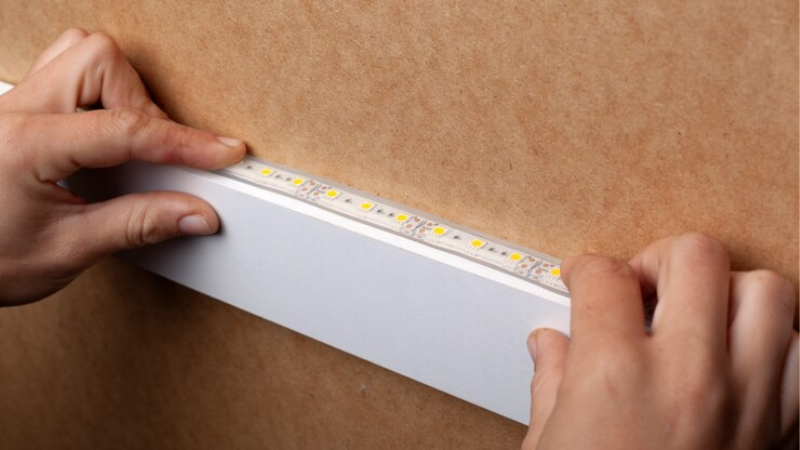
Struggling to take your lighting solutions to the next level with high-performing, performance-driven LED strips?
Risuncorp provides customized commercial LED lights to meet your specific environment and technical requirements. Contact us today for professional advice, volume capacities, and custom-made strip lengths that lead your imagination.
Q1: What is the difference between 3528, 5050, and 2835 strips?
3528 strips are cost-effective with low brightness, and they can be used for decorative lighting. 5050 and 2835 strips are brighter, and 2835 has superior heat dissipation along with efficiency, and can be utilized for use in commercial or general lighting.
Q2: Can I use a thick LED strip on a slim profile?
You can get it to work, but it gets cranky occasionally. Slim strips won’t fit so tightly in tight spaces—use slimmer strips or adjustable mounting for a good fit.
Q3: Do longer LED strips have more brightness?
Not exactly. Brightness is more about the density of LEDs (the number of LEDs per meter) than strip width—longer strips have room to fit more infill, but density is what counts.
Comprehensive Lighting Solutions for MRO Wholesalers and Professionals
send your inquiry
Hi, I'm the author of this post, and I have been in this field for more than 15 years. If you want to wholesale lighting fixtures or lighting related product, feel free to ask me any questions.
Learn More >>Download our catalog to view all of our lighting products.
Ready to get started ?
Send Your InquiryOur team will get back to you promptly

please
download
Get notified about new products
Our team will get back to you promptly!
Add your first comment to this post